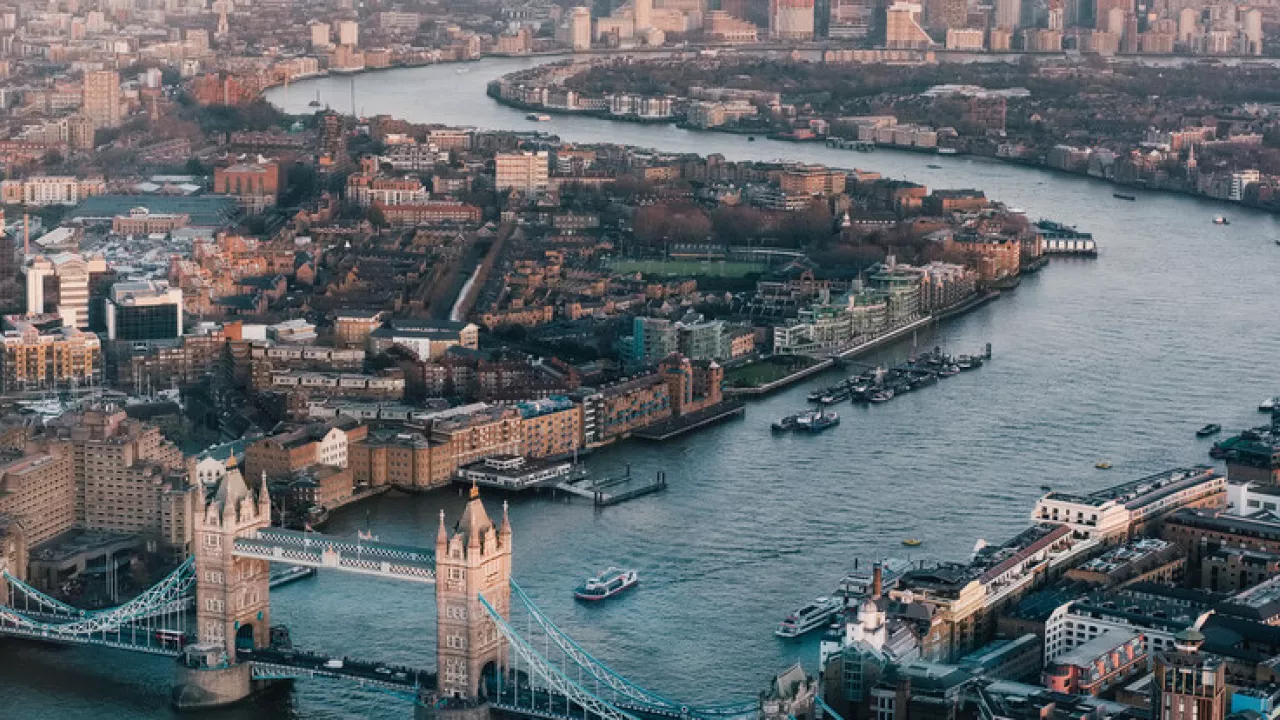Microplastics rise in Thames during second lockdown
Microplastics rise in Thames during second lockdown
Published
14 March 2023
Share
A study from the University of East London, analysed the impact that the Covid-19 pandemic had on the levels of microplastics found in the River Thames.
The study measured samples of water collected from five sites along the River Thames each month between May 2019 – May 2021. The highest levels of microplastics, 27.1 pieces for every 1 litre, were found during the second lockdown which took place between November and December 2020.
A total of 4,480 microplastics were found during the study. Compared to pre-Covid levels, microplastics decreased by 34 per cent in the first UK national lockdown between March and June 2020, however, then rose by 77 per cent during the second national lockdown. The lowest levels of MPs in the Thames were found in May 2021.
"It was assumed that the Covid-19 pandemic would have a positive impact on the environment with less greenhouse emissions, noise, air and light pollution," said study leader, Ria Devereux, a PhD student from UEL's Sustainability Research Institute (SRI).
"However, increased medical equipment and personal protect equipment usage combined with improper waste management practices, such as the reduction in recycling and growth in incineration and landfilling, led to a rise in plastic waste entering the environment.
"The increase in Lockdown two may be attributed to the Eat Out to Help Out scheme which was launched in August and meant more people were outside three months prior to the second lockdown.
"We identified microplastics in every sample of our study and believe that this increase can be attributed to the use, inefficient disposal and breakdown of facemasks and personal protection equipment used throughout the pandemic," she continued.

Blue and black microplastic fibres found in the River Thames
Microplastics are still degrading in the Thames
The researchers collected three one-litre samples each month from five sites along the River Thames including Teddington Lock, St Katherines/Tower Bridge, Limehouse, Tilbury and Southend-on-Sea.
82 per cent of the microplastics found were from fibres which can be traced back to face coverings and other protection equipment. Samples of polypropylene, a microplastic commonly associated with medical equipment increased during lockdown two and three.
One facemask has been reported to release 24,300 microplastic fibres per wash and if everyone in the UK used one mask daily for a year, it would produce 66,000 tons of plastic waste.
The most common colours of microplastics found were black, blue, red and transparent which are abundant in the stomachs of fish species such as European flounder and European Smelt.
Ria said:
Results from the second lockdown are concerning, as overtime microplastics will continue to degrade and could have serious impacts on our rivers, oceans and public health.
The true impact of the Covid-19 pandemic on plastic pollution worldwide may not be seen for some years as the plastic items that had increased production and entered our water systems, such as masks and gloves, degrade and release into the environment.

A sample of a blue microplastic found in the River Thames
Future pandemics must safeguard against microplastics
The highest level of microplastics were recorded at Tilbury. By the third lockdown overall microplastic levels had reduced to 5.5 pieces found per 1 litre.
Tire wear particles decreased consistently over the first two lockdowns as only keyworkers were permitted to work and travel. However, by lockdown three they had risen once again coinciding with hotels, pubs and restaurants reopening.
"Results in the third lockdown reflect public attitudes to the pandemic as less people were wearing face coverings and they were less cases which led to a decrease in PPE usage," said Ria.
"Regional and national actions and policies should be developed that focus on decreasing sources of plastic pollution and changing public behaviour, as well as prioritising clean-ups to limit the long-term impacts of plastic use during the Covid-19 and similar future pandemics," she concluded.
To read the full paper see ‘Impact of the Covid-19 pandemic on microplastic abundance along the River Thames,’ published in Science Direct Marine Pollution Bulletin.
Share
Communications team
Contact us for press and interview requests
